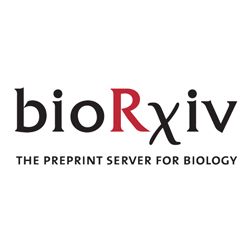
jeffspence.github.io

In new work @nature.com with @hakha.bsky.social, @jkpritch.bsky.social, and our wonderful coauthors we find that the key factors are what we call Specificity, Length, and Luck!
🧬🧪🧵
www.nature.com/articles/s41...

I am excited to announce that our new study explaining the missing heritability of many phenotypes using WGS data from ~347,000 UK Biobank participants has just been published in @Nature.
Our manuscript is here: www.nature.com/articles/s41....

I am excited to announce that our new study explaining the missing heritability of many phenotypes using WGS data from ~347,000 UK Biobank participants has just been published in @Nature.
Our manuscript is here: www.nature.com/articles/s41....
www.biorxiv.org/content/10.1...
www.biorxiv.org/content/10.1...
“Revisiting the evidence for long-lived balancing selection in humans” 🧪🧬
www.biorxiv.org/content/10.1...

“Revisiting the evidence for long-lived balancing selection in humans” 🧪🧬
www.biorxiv.org/content/10.1...

go.nature.com/47Fsqax

go.nature.com/47Fsqax
I design and analyze probabilistic machine-learning methods---motivated by real-world scientific constraints, and developed in collaboration with scientists in biology, chemistry, and physics.
A few highlights of my research areas are:

I design and analyze probabilistic machine-learning methods---motivated by real-world scientific constraints, and developed in collaboration with scientists in biology, chemistry, and physics.
A few highlights of my research areas are:

www.biorxiv.org/content/10.1...

www.biorxiv.org/content/10.1...
In new work @nature.com with @hakha.bsky.social, @jkpritch.bsky.social, and our wonderful coauthors we find that the key factors are what we call Specificity, Length, and Luck!
🧬🧪🧵
www.nature.com/articles/s41...

@jkpritch.bsky.social & colleagues
“Specificity, length and luck drive gene rankings in association studies”, out in @nature.com
🧪🧬
👇
In new work @nature.com with @hakha.bsky.social, @jkpritch.bsky.social, and our wonderful coauthors we find that the key factors are what we call Specificity, Length, and Luck!
🧬🧪🧵
www.nature.com/articles/s41...

@jkpritch.bsky.social & colleagues
“Specificity, length and luck drive gene rankings in association studies”, out in @nature.com
🧪🧬
👇
In new work @nature.com with @hakha.bsky.social, @jkpritch.bsky.social, and our wonderful coauthors we find that the key factors are what we call Specificity, Length, and Luck!
🧬🧪🧵
www.nature.com/articles/s41...

We describe a critical concept that we call *specificity*.
Led by Jeff Spence and Hakhamanesh Mostafavi:
In new work @nature.com with @hakha.bsky.social, @jkpritch.bsky.social, and our wonderful coauthors we find that the key factors are what we call Specificity, Length, and Luck!
🧬🧪🧵
www.nature.com/articles/s41...

We describe a critical concept that we call *specificity*.
Led by Jeff Spence and Hakhamanesh Mostafavi:
In new work @nature.com with @hakha.bsky.social, @jkpritch.bsky.social, and our wonderful coauthors we find that the key factors are what we call Specificity, Length, and Luck!
🧬🧪🧵
www.nature.com/articles/s41...

In new work @nature.com with @hakha.bsky.social, @jkpritch.bsky.social, and our wonderful coauthors we find that the key factors are what we call Specificity, Length, and Luck!
🧬🧪🧵
www.nature.com/articles/s41...

In new work @nature.com with @hakha.bsky.social, @jkpritch.bsky.social, and our wonderful coauthors we find that the key factors are what we call Specificity, Length, and Luck!
🧬🧪🧵
www.nature.com/articles/s41...

In new work @nature.com with @hakha.bsky.social, @jkpritch.bsky.social, and our wonderful coauthors we find that the key factors are what we call Specificity, Length, and Luck!
🧬🧪🧵
www.nature.com/articles/s41...

In new work @nature.com with @hakha.bsky.social, @jkpritch.bsky.social, and our wonderful coauthors we find that the key factors are what we call Specificity, Length, and Luck!
🧬🧪🧵
www.nature.com/articles/s41...


Speakers include @timfrayling.bsky.social, @marylynritchie.bsky.social, Dr. Joelle Mbatchou and Dr. Eleonora Porcu
Travel grants available - register here: emgm2026.sciencesconf.org?lang=en

Speakers include @timfrayling.bsky.social, @marylynritchie.bsky.social, Dr. Joelle Mbatchou and Dr. Eleonora Porcu
Travel grants available - register here: emgm2026.sciencesconf.org?lang=en


